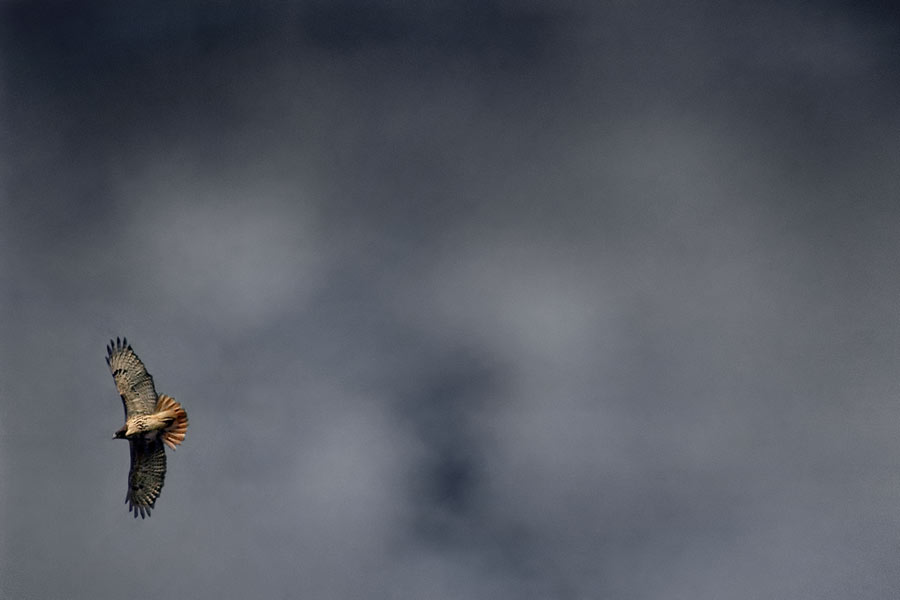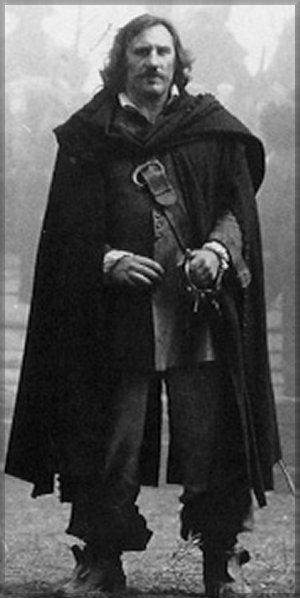
And this one of two dogs:

Her blog: A Walk Through Durham Township, Pennsylvania
"You have to study a great deal to know a little."
Pensees et Fragments Inedits de Montesquieu



Bear and forbear a maxim trueThat said, Sarah had a good ear for poetic phrases. I particularly like "Joy rings our steps" in the following verse. If you can make out any of the missing words, please supply them in comments.
As erring mortals ever knew.
====================
Beauty displays a twofold kind
That of the body and the mind.


 Natalie Bennett, an Australian who's been living in London for the past seven years, writes two interesting blogs, Philobiblon and My London Your London. She says: "I'm a generalist. I want to know about everything, but not in too much detail."
Natalie Bennett, an Australian who's been living in London for the past seven years, writes two interesting blogs, Philobiblon and My London Your London. She says: "I'm a generalist. I want to know about everything, but not in too much detail." Philobiblon focuses on history, science, and art, particularly from a woman's point of view (as she says "always feminist"). The blog's name comes from a Medieval book by called The Love of Books, Being the Philobiblon of Richard de Bury.
Philobiblon focuses on history, science, and art, particularly from a woman's point of view (as she says "always feminist"). The blog's name comes from a Medieval book by called The Love of Books, Being the Philobiblon of Richard de Bury.Listening to history: Fashion Lives at the British Library
Lily Silberberg's story might be that of the 20th century - the good side of the period, not its darker hue. She was born in London in 1929, to Jewish parents whose had fled Russia after the Revolution. Her father was a "journeyman tailor", her mother an outworker spending her evenings sewing buttonholes late into the night by the light of a gas lamp.
Yet by the time Lily retired, well into her seventies, she had a full, satisfying, successful career behind her. She'd been a respected higher education lecturer, published a book, The Art of Dress Modelling, and spent the last years of her working life teaching her skills to the Bangladeshi community in Tower Hamlets.
When I heard of the exhibition I feared a parade through the usual glamorous suspects, but this is a show on the other side of fashion, the behind-the-scene characters who do all of the work while designers swan around collecting the glory.
But where's the loo?
It was in the Indian city of Varanasi that I first realised that provision of lavatory facilities is a feminist issue. Simply there are none, or at least weren't when I was there eight or so years ago. For the men this wasn't a problem; they just went anywhere. (One of the many things in Varanasi that contribute to it being a total hole of a place - if someone tells you to put it on their tour itinerary, ignore them.)
Women's movements were effectively restricted to the range of their home, and the homes of any relatives or friends that might be along their intended route.
The above image is of London, Kensington High Street, about 1860. Then the same restrictions applied on Englishwomen."The middle-class diarist Ursula Bloom explained that when she was a girl 'there were no public lavatories in England, and it was thought the height of indecency ever to desire anything of the sort.' She went on to recall that 'in London fashionable ladies went for a day's shopping with no hope of any relief for those faithful tides of nature until they returned home again.' ...This also brings back memories of my agricultural science studies (my first degree - my only explanation is that I was only 17 when I chose it). We were the first year in which women were a majority, and the first-year excursion included virtually no facilities. Only wholesale revolts forced the bus to wait for the long queue using each farmer's one and only loo. (And this was in northwest NSW, so no trees as an alternative option.)
Edith Hall, a working-class woman who was born in Middlesex in 1908, recalled that while walking with her mother along the Thames during the First World War, she asked, 'There aren't many lavatories for ladies, are there?' Her mother matter-of-factly answered: ' Well, we are more lucky now ... There didn't seem to be any at all when we were young ... Either ladies didn't go out or ladies didn't 'go'.' " (Quoted in Shopping for Pleasure: Women in the Making of London's West End, Erika Diane Rappaport, Princeton University Press, 2000, p. 82)
*Image from Old and New London, By Edward Walford, Illustrated, Part 49, hard to date, but perhaps 1890s.)
We gather together to ask the Lord's blessing;Though hymn-like, this patriotic song would not have been sung in church. It wasn't until 1937 that Dutch Reformed churches permitted the singing of anything but psalms.
he chastens and hastens his will to make known;
the wicked oppressing now cease from distressing:
sing praise to his Name, he forgets not his own.
Beside us to guide us, our God with us joining,
ordaining, maintaining his kingdom divine;
so from the beginning the fight we were winning:
thou, Lord, wast at our side: all glory be thine!
We all do extol thee, thou leader triumphant,
and pray that thou still our defender wilt be.
Let thy congregation escape tribulation:
thy Name be ever praised! O Lord, make us free!





It turns out Liker is Winnie the Pooh: "Although very loyal to your friends, your drive to fulfill your own desires sometimes gets the better of you.
Harper's Index for October 2005
Estimated amount of African wealth held in foreign accounts, expressed as a percentage of African GDP: 172
Chance that a U.S. MBA obtained since 1980 was awarded to a woman: 1 in 3[U.S. Department of Education]
Chance that a corporate officer of a Fortune 500 company today is: 1 in 6
Percentage by which the average amount of anesthetic required by redheads exceeds the average for everyone: 19
Chance that a medical study may be inaccurate or misleading, according to the AMA’s journal: 1 in 3[JAMA (Chicago)]
Months of vacation that President Bush has taken in five years: 11
Years after the Watts riots that the Dr. Huey P. Newton Foundation trademarked “Burn Baby Burn” for a hot sauce: 40
Rank of 2004 among the most fiscally reckless years in U.S. history, according to the comptroller general: 1[U.S. Government Accountability Office]
Projected cost of disability payments to Iraq War veterans by 2050, based on rates for Gulf War veterans: $285,000,000,000

I am sometimes so very sceptical as to think Poetry itself a mere Jack a lanthen to amuse whoever may chance to be struck with its brilliance. As Tradesmen say every thing is worth what it will fetch, so probably every mental pursuit takes its reality and worth from the ardor of the pursuer - being in itself a nothing - Ethereal things may at least be thus real, divided under three heads - Things real - things semireal - and no things. Things real - such as existences of Sun Moon & Stars and passages of Shakspeare. Things semi-real such as Love, the Clouds &c which require a greeting of the Spirit to make them wholly exist - and Nothings which are made Great and dignified by an ardent pursuit - which by the by stamps the burgundy mark on the bottles of our Minds, insomuch as they are able to "consecrate whate'er they look upon".This is worth reading a few times over. He staked his life on poetry; endured poverty and sacrificed greatly for his art -- he and his work were ridiculed in the most respected periodicals of his day, and despite this determined perseverance, he could say he wasn't at all sure he was right. He's witty in dissecting the real, semi-real, and unreal, but not trivially so. "Nothings which are made Great and dignified by ardent pursuit" is meant to be funny, but I think it's also deadly earnest. He knew the powers of his own creative ability.
Aye this may be carried - but what am I talking of - it is an old maxim of mine and of course must be well known that every point of thought is the centre of an intellectual world - the two uppermost thoughts in a Man's mind are the two poles of his World he revolves on them and every thing is southward or northward to him through their means. We take but three steps from feathers to iron. Now my dear fellow I must once for all tell you I have not one Idea of the truth of any of my speculations - I shall never be a Reasoner because I care not to be in the right, when retired from bickering and in a proper philosophical temperI am struck by these thoughts: "every point of thought is the centre of an intellectual world," the "uppermost thoughts in a Man's mind are the two poles of his World," "three steps from feathers to iron." They aren't transparent, and aren't meant to be. He knew "Nothings," not as fancy, not ornament, not frivolity, but the emptyness which is the creative center of intellect. And he knew well the antithetical elements of life.
walks abreast with his days, and ... does not postpone his life, but lives already. He has not one chance, but a hundred chances. Let a Stoic open the resources of man, and tell men they are not leaning willows, but can and must detach themselves; that with the exercise of self-trust, new powers shall appear... (from Self Reliance)


Paris intifada. If burning the ’burbs gets you more “respect” from Chirac and Sarkozy, then you might as well burn ’em again, and again
... Cath Field
... Mark Steyn
... Spiegel
... NYSun
... Naima Bouteldja
... WSJ
... David Aaronovitch
... Frank Furedi
... Daniel Pipes
... Antoine Audouard
... Olivier Roy
... Jon Freedland
... Jim Hoagland
... David Ignatius
... Nidra Poller
... Anne Applebaum
... WP roundup
... Slate roundup
... Joel Kotkin
 If you do a web search on breaking windows, you'll see a lot of chatter about the Microsoft Windows operating system. My topic, however, is real breaking of real windows. The newspapers say the rioting in France results at least partly from the ethnic discrimination suffered by the children of Algerians who resettled in France in the past few decades. These are French citizens who are not being treated as citizens ought. The unrest itself and the pattern of escalation remind me of the revolution of 1848 in Germany in which my great- great-grandfather took part. The Guardian has good overall coverage of the French riots. There's a good review article in the NYT as well. For a summary of the events in Germany in 1848 see: The German 1848 Revolution: A German Perspective.
If you do a web search on breaking windows, you'll see a lot of chatter about the Microsoft Windows operating system. My topic, however, is real breaking of real windows. The newspapers say the rioting in France results at least partly from the ethnic discrimination suffered by the children of Algerians who resettled in France in the past few decades. These are French citizens who are not being treated as citizens ought. The unrest itself and the pattern of escalation remind me of the revolution of 1848 in Germany in which my great- great-grandfather took part. The Guardian has good overall coverage of the French riots. There's a good review article in the NYT as well. For a summary of the events in Germany in 1848 see: The German 1848 Revolution: A German Perspective. In 1848 the Parliament at Frankfort on the Main proposed Johann of Austria for Emperor of Germany and the Republicans in Munster had a jubilee in honor of the event. All but the conservatives decorated their houses. The Republican boys -- I was one of them -- broke the windows in all the undecorated houses of the conservatives. My father was a conservative and I broke all his windows. Some of the boys were arrested but I escaped."[This is from a news clipping among the papers he left to posterity.]
Aye this may be carried - but what am I talking of - it is an old maxim of mine and of course must be well known that every point of thought is the centre of an intellectual world - the two uppermost thoughts in a Man's mind are the two poles of his World he revolves on them and every thing is southward or northward to him through their means. We take but three steps from feathers to iron. Now my dear fellow I must once for all tell you I have not one Idea of the truth of any of my speculations - I shall never be a Reasoner because I care not to be in the right, when retired from bickering and in a proper philosophical temper.What did he mean by this? Can devine his intent by a careful reading of the words themselves, or is an exporation of their context essential to understanding them? I've tried both and am still mulling over the words and also reviewing what's known about his life and thought at the time he wrote them.

Land of the freeI don’t often just reproduce someone else’s post verbatim, but I just surfed over to the Virtual Stoa where Chris has the following from the US Department of Justice
ALMOST 7 MILLION ADULTS UNDER CORRECTIONAL SUPERVISION BEHIND BARS OR ON PROBATION OR PAROLE IN THE COMMUNITYWASHINGTON, D.C.—The number of adults in prison, jail, or on probation or parole reached almost 7 million during 2004, the Department of Justice’s Bureau of Justice Statistics (BJS) announced today. The number has grown by more than 1.6 million adults under correctional authority control since 1995.The nation’s total correctional population was 6,996,500 in 2004, of which 4,151,125 were living in the community on probation; 1,421,911 were in a state or federal prison; 765,355 were living in the community on parole; and 713,990 were in jail, according to the BJS report on probation and parole. At year-end one in every 31 adults were under correctional supervision, which was 3.2 percent of the U.S. adult population…As Chris says, wow.
Surfing over to Nationmaster —which uses the stats for 2003 and so has slightly fewer actual prisoners—I see that the US also has the highest absolute number of prisoners in the world (more than China!) , and the highest number per capita (715 per 100k). For comparison, the higher number per capita in the EU is 210 per 100k (Poland) and 144 for “older” Europe (Spain). For some reason the UK isn’t listed, but I think the figure works out at about 125.













Depardieu ends film career, paper says
PARIS (Reuters) - Actor Gerard Depardieu is ending his film career, a newspaper quoted the popular Frenchman as saying on Sunday.
"I have nothing to lose. I have made 170 films. I have nothing left to prove. I am not going to hang on like an idiot," Depardieu, one of France's best known actors at home and abroad, was quoted as saying by Le Parisien Dimanche newspaper.
"I'm in the process of stopping filming," said the portly star of films such as "Cyrano de Bergerac," "Green Card" and "Jean de Florette."
Depardieu, 56, made the comments on the set of the upcoming French film "Michou d'Auber." He would also star in an Asterix film to be made next year, the paper said.

OnGuardOnline.gov provides practical tips from the federal government and the technology industry to help you be on guard against Internet fraud, secure your computer, and protect your personal information.Source: BeSpacific
7 Practices for Safer Computing
- Protect your personal information. It's valuable.
- Know who you're dealing with.
- Use anti-virus software and a firewall, and update both
regularly.- Be sure to set up your operating system and Web browser software
properly, and update them regularly.- Protect your passwords.
- Back up important files.
- Learn who to contact if something goes wrong online
Access to information and entertainment, credit and financial services, products from every corner of the world — even to your work — is greater than earlier generations could ever have imagined. Thanks to the Internet, you can order books, clothes, or appliances online; reserve a hotel room across the ocean; download music and games; check your bank balance 24 hours a day; or access your workplace from thousands of miles away.
The flip-side, however, is that the Internet — and the anonymity it affords — also can give online scammers, hackers, and identity thieves access to your computer, personal information, finances, and more.
But with awareness as your safety net, you can minimize the chance of an Internet mishap. Being on guard online helps you protect your information, your computer, even yourself. To be safer and more secure online, adopt these seven practices.

I've done a set of posts reproducing parts of this diary and giving notes on people, places, and events that it names. The author was an aristocrat in England writing just before the outbreak of the American Revolutionary War. Married to an ambitious politician who opposed the government's coercive actions leading up to that rebellion, she was an articulate, self-confident, and intellgent witness to the major events and lesser incidents of her time. Here are links the posts: first, second, third, fourth, fifth, sixth, seventh, eighth, ninth, tenth, and eleventh. I've also done the following posts giving what little I can surmise about her from reading the diary, the biography in which it's reproduced, and the few other sources that refer to her: Diary of Lady Shelburne -- Une belle Ladi Sensée, Diary of Lady Shelburne -- The Life of Sophie and William, and Diary of Lady Shelburne - Thomas Coulican Phoenix.
|
|
